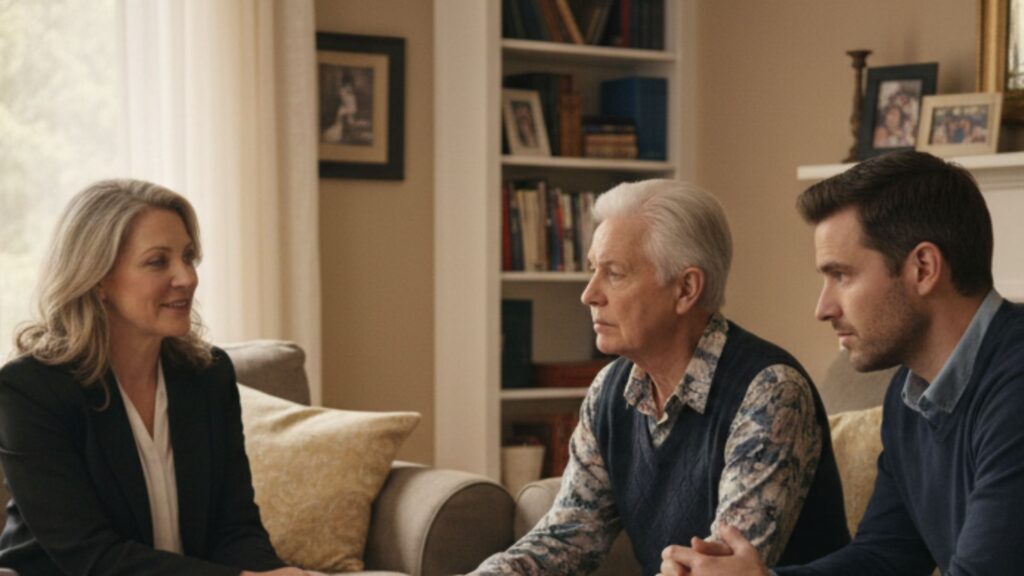When a loved one passes away, emotions often run high and when it comes to dividing an estate, disagreements can quickly turn into legal battles. Contested wills are among the most complex and emotionally charged issues in estate law. In Wisconsin, understanding why disputes arise and how they can be resolved is key to protecting both your rights and family relationships.
Why Do Will Disputes Arise in Wisconsin?
A will dispute occurs when someone challenges the validity or terms of a deceased person’s will. These conflicts are more common than many expect and can stem from a range of reasons, including:
- Undue influence or coercion – One of the most common grounds for contesting a will is the suspicion that the deceased was pressured or manipulated by someone close to them.
- Lack of capacity – A will may be challenged if the person who created it did not have the mental capacity to fully understand their decisions at the time.
- Fraud or forgery – In rare cases, a will may have been altered or even forged, leading to serious probate litigation.
- Ambiguities or errors – Vague language or drafting mistakes can create confusion and disagreements among beneficiaries.
No matter the reason, family estate disputes can quickly escalate if not handled carefully with the potential to damage relationships and drain estate resources.
Understanding the Legal Process for Contested Wills
When a will is challenged in Wisconsin, the dispute is typically handled during the probate process, the court-supervised procedure for distributing assets.
Here’s how the process usually unfolds:
- Filing an objection: A family member or interested party must formally contest the will by filing a written objection in probate court.
- Gathering evidence: The court reviews documents, medical records, witness testimony, and other evidence to determine the will’s validity.
- Mediation or litigation: Some inheritance conflicts can be resolved through negotiation or mediation. Others proceed to court, where a judge ultimately decides whether the will stands.
For families already under stress, this process can be lengthy and emotionally taxing, making legal guidance essential.
Resolving Inheritance Conflicts Peacefully
The good news is that not all will disputes in Wisconsin need to end in court. In fact, many can be settled through careful planning, open communication, and professional mediation.
Key steps to reduce conflict include:
- Transparent estate planning: When your intentions are clearly documented and explained, there’s less room for misunderstanding.
- Appointing a neutral executor: Choosing a trusted, unbiased executor can prevent perceptions of favoritism.
- Considering mediation early: A trained mediator can help resolve emotional disagreements before they escalate.
- Working with an estate planning attorney: An experienced legal team can ensure that your documents are valid, up-to-date, and legally sound.
At Krause Estate Planning & Elder Law Center, our attorneys help families anticipate and prevent disputes through personalized family estate planning strategies. From creating airtight wills to representing clients in probate litigation, we’re committed to protecting your legacy and your peace of mind.
Avoiding Will Contests Through Smart Planning
Preventing a will contest often starts long before probate. The following strategies can help ensure your wishes are honored and your family avoids conflict:
- Use clear and detailed language in your will and trust documents.
- Regularly update your estate plan after major life events (marriage, divorce, births, or deaths).
- Document your capacity and intent during the estate planning process.
- Consider alternative tools like trusts to reduce the risk of disputes and bypass probate altogether.
These proactive measures go a long way in preserving generational harmony and ensuring your legacy is protected.
If you’re facing a will dispute or want to safeguard your estate against future conflicts, the attorneys at Krause Estate Planning & Elder Law Center can help. Schedule your confidential consultation today to ensure your family’s legacy remains protected and respected.
TL; DR
Q1: What does it mean when a will is contested in Wisconsin?
A: A contested will in Wisconsin occurs when someone challenges the validity or terms of a deceased person’s will. This typically happens during probate and may involve claims of undue influence, lack of capacity, fraud, or unclear language in the document.
Q2: What are the most common reasons wills are disputed in Wisconsin?
A: The most common reasons for will disputes include suspected coercion, mental incapacity of the decedent, errors in drafting, or allegations of fraud or forgery. Family disagreements over asset distribution can also trigger conflicts during probate.
Q3: How are contested wills handled in Wisconsin probate court?
A: When a will is contested, the process begins with a formal objection filed in probate court. The court then reviews evidence such as witness statements, medical records, and the will itself. Some disputes are settled through mediation, while others go to trial for a judge’s decision.
Q4: Can inheritance disputes in Wisconsin be resolved without going to court?
A: Yes. Many inheritance conflicts can be resolved through mediation or negotiation. These approaches are often faster, less costly, and less emotionally taxing than litigation. Working with an experienced estate planning attorney can help facilitate peaceful resolution.
Q5: How can families prevent will contests before they happen?
A: Families can reduce the risk of disputes by using clear, detailed estate documents, updating plans after major life changes, documenting mental capacity during planning, and considering tools like trusts to avoid probate altogether.



